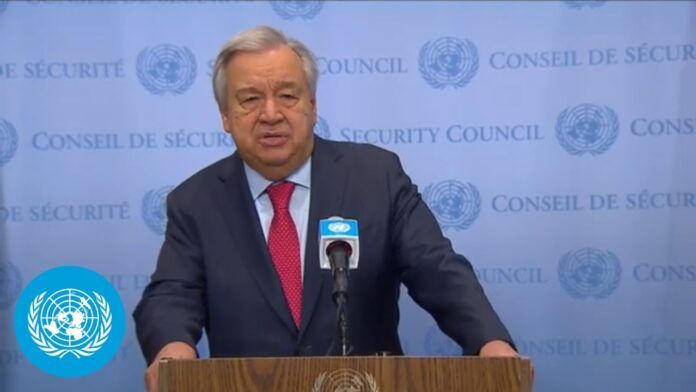Antonio Guterres highlights the severe humanitarian crisis and escalating violence in Sudan, particularly in Darfur, as the conflict reaches its one-year mark
UN Secretary-General Antonio Guterres has issued a stern warning about the ongoing conflict in Sudan, suggesting that indiscriminate attacks against civilians by the warring factions could constitute war crimes and crimes against humanity. His comments come at a critical time as Sudan marks one year of violent clashes between the Sudanese Armed Forces (SAF) and the paramilitary Rapid Support Forces (RSF).
The conflict, which has plunged Sudan into chaos since it began, now sees nearly half of the country’s population in need of humanitarian aid, with approximately eight million people displaced from their homes. The situation has prompted an international response, with a recent donor conference in Paris aiming to address the dire humanitarian needs.
“This is more than a conflict between two warring parties. It is a war being waged on the Sudanese people,” Guterres stated, emphasizing the extensive civilian casualties and widespread acute hunger affecting 18 million Sudanese.
The UN chief specifically condemned the rampant use of sexual violence and the targeted attacks on aid convoys, actions that exacerbate the suffering of the civilian population and hinder relief efforts. His remarks underscore the international community’s growing concern over the humanitarian and ethical violations occurring in the conflict.
Particular attention was drawn to the situation in el-Fasher, the capital of North Darfur State, which has become a focal point of the conflict. El-Fasher remains the last state capital not under RSF control and serves as a crucial hub for humanitarian aid in the region. Recent reports indicate that RSF-affiliated fighters have intensified their assault on the area, attacking and burning villages, which has led to significant displacement and jeopardized the city’s only water source.
Guterres expressed deep concern over the potential for these hostilities to escalate into a full-blown intercommunal conflict across Darfur, a region already scarred by previous episodes of mass violence and ethnic killings. “Any attack on el-Fasher would be devastating for civilians and could lead to full-blown intercommunal conflict across Darfur,” he warned.
The ongoing violence on the outskirts of el-Fasher and the potential for further escalation pose a grave threat to the stability of the region and the efficacy of ongoing aid operations. The UN-backed global authority on food security has called for immediate action to prevent a catastrophic hunger crisis in Sudan, stressing the urgent need to avert widespread death and the total collapse of local livelihoods.
As the international community watches closely, the call for intensified diplomatic efforts and increased humanitarian aid is more pressing than ever, with the aim of mitigating the suffering and bringing about a resolution to the conflict.
